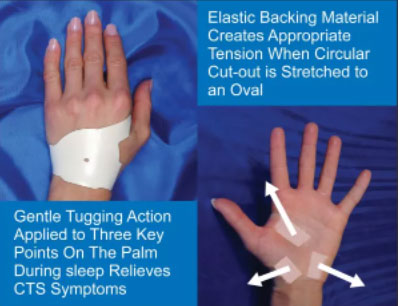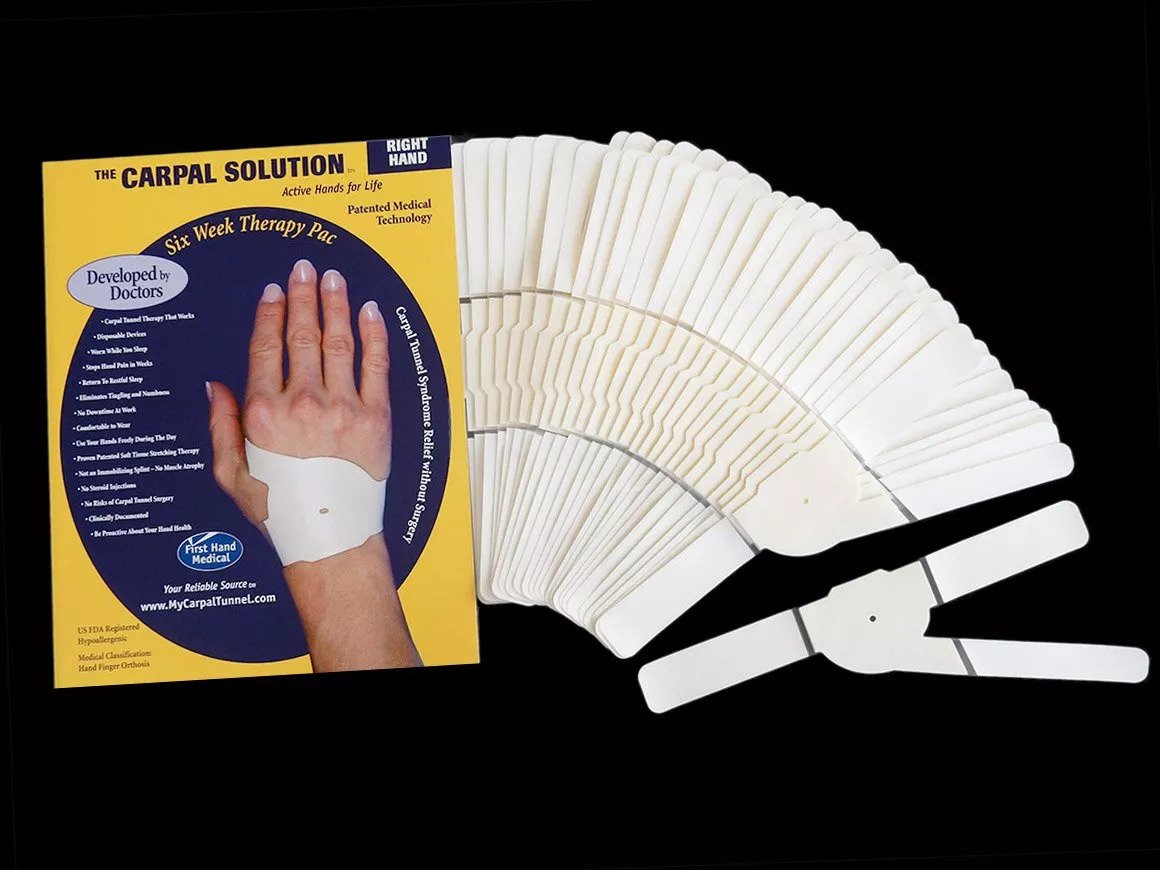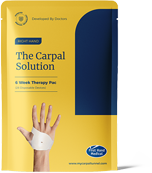What Carpal Tunnel Treatment is safe for someone on Blood Thinners?


What Carpal Tunnel Treatment is safe for someone on Blood Thinners?


Question:
“I am on Blood Thinners and the surgeon would not perform Carpal Tunnel surgery due to the risk of stroke and blood clots. Why won’t he do the surgical release procedure? I have tried the Splints. They Don’t work! What can I do to treat Carpal Tunnel Syndrome without Surgery?”
Blake – Manchester, New Hampshire
Carpal Tunnel Answers by Doctors:
Consistent free flowing blood circulation through your arteries and veins is one of the body’s most important processes. Regular exposure to nutrient and oxygen rich blood supplies are key to the health, function and healing of all tissue and organs of the body. However, there are many different factors can impede blood flow.
Who can get blood clots?
People that are dehydrated and sitting inactive on a plane trip for long hours for instance can develop deep vein thrombosis (DVT) or more simply stated, a blood clot. Pregnant women are in a higher risk group to get blood clots.
Blood Clots are one of the most common and dangerous conditions that restrict blood flow.
There are many other risk factors that can lead to a clot:
- Prolonged Bed Rest or Paralysis
- Injury
- Surgery
- Obesity
- Smoking
- Cancer
- Carpal Tunnel Syndrome
- Any Compressive disorder like Tarsal Tunnel Syndrome
- An Inherited condition called “Factor 5”
- Pregnancy
- Dehydration
- Sitting idle in a car or plane for long periods.
Carpal Tunnel almost always impedes blood flow in the hand, wrist and forearm increasing the risk of a blood clot due to poor circulation for people with chronic CTS.
Doctors regularly put people in high risk categories with multiple risk factors on blood thinner medication to reduce the risks of developing a clot. There is a trade-off between the risk of the clot and the risks of being on blood thinners that has to be carefully weighed by the medical professionals consulting with the patient.
There are millions of people around the world on blood thinners today.
So, why do Surgeons refuse to do surgery on a patient who is on blood thinners?
A patient on blood thinning medication can end up experiencing excessive bleeding during any significant surgical procedure. In the case of Carpal Tunnel Surgery, the incisions and cutting is proximate to a large artery and large veins in a relatively small space in the wrist area. If a large artery or vein starts bleeding, it can be difficult to slow down and can make it difficult to see the ligament that is to be servered in the procedure. Excessive bleeding also presents obvious health risks to the patient. Patients can actually bleed to death on the operating table or have a heart attack or stroke due to stress from loss of blood. The healing process is also slowed down post-surgery when a patient is on blood thinners because the clotting mechanism is an important part of rapid healing after surgery.
Since surgery, itself can cause a blood clot, surgeons are often reluctant to ask a person who is in a high risk group for clots to go off their blood thinner medication in order to reduce the risk of excessive bleeding during surgery. So, it is a bit of a “Catch 22” situation. This is why your surgeon has declined to perform the surgical procedure.
Just last week a patient, who has CTS in both hands, described how he experienced a stroke within a few days of Carpal Tunnel Surgery. The surgeon insisted that he go off his blood thinner medication for five days prior to surgery. Understandably, he was determined to treat the Carpal Tunnel Syndrome in his other hand in some other way besides a surgical procedure. Trading CTS for a stroke is not a good exchange.
Safe Carpal Tunnel Treatment for People on Blood Thinners
The good news is, there are safe, effective, Doctor developed treatment options for Carpal Tunnel Syndrome that present no risks to people on blood thinner medication or pregnant women.
Doctors have developed a gentle stretching treatment for Carpal Tunnel Syndrome. It is called the Carpal Solution Therapy. It is easy to apply for eight hours of stretching per 24 hour period over a six week treatment protocol. You simply put on these stretch taping devices at night before bed time and set the tension and it gently stretches your hand passively while you sleep.
The Doctors’ Six Week Protocol requires wearing the Carpal Solution Stretching device every night for two weeks followed by every 2nd night for the following four weeks.
The Carpal Solution works by stretching the soft tissue gently, but consistently for eight hours. There is no other way to achieve this type of targeted consistent gentle stretching treatment.
Most people get relief of their worst Carpal Tunnel Symptoms within 3 Weeks and complete remission within 6 Weeks. Then it does not come back for 2 – 7 years for most people. The Carpal Solution has a 97% success rate.
Yes, there is a Safe Treatment for Carpal Tunnel Syndrome for a person that is on blood thinner medication.
People on blood thinners can continue using their medication while they treat themselves with the Carpal Solution in the Comfort of home. They can get relief from CTS without exposing themselves to any additional risk of a clot. They actually reduce one of the risk factors of stroke or blood clots by getting Carpal Tunnel Syndrome under control.
Once the Carpal Tunnel Symptoms disappear the pressure on the nerve and the blood vessels is also gone. You can go on with your active life without the hand pain, without the hand numbness, without the sleep interruption and without the loss of earnings. No more worries. The Carpal Solution Therapy is the what Neurologists say is: “The best first line treatment for Carpal Tunnel Syndrome.”
Daytime stretching regimens are also helpful, but it is impossible for most people to do it long enough to have any significant impact on CTS.
 The Carpal Solution is FDA registered and made in a FDA registered facility.
The Carpal Solution is FDA registered and made in a FDA registered facility.







